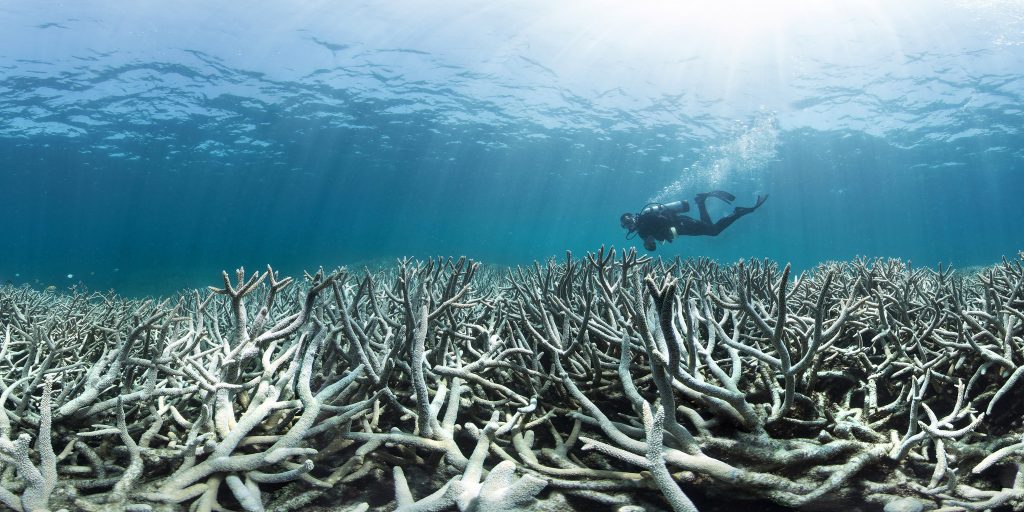Plastic trash greatly increasing risk of disease in coral reefs, study finds

February 1st, 2018
The presence of plastic trash in our oceans is greatly increasing the chances of disease in coral reefs, a new study reveals.
The new study from Cornell University estimates that about 11 billion plastic items get caught in coral reefs throughout the Asia-Pacific area. This figure is expected to jump by 40 per cent by 2025.
The study states that reducing the amount of plastic waste is essential for the survival of coral reefs and the decreases of coral diseases. The researchers studied 159 coral reefs from countries such as Australia, Thailand, and Indonesia for plastic waste and analysed the impact of plastic on diseases that affect corals.
This plastic can act as hosts to bacteria and microbes, the study states, making it the perfect vessel for microscopic organisms that can spread diseases once they come in contact with corals.
The project`s lead author, Joleah Lamb, said that plastics are associated with a group of coral diseases called white syndromes that are characterized by lesions in the coral tissue.
If untreated they can lead to the total destruction of the coral tissue, warned Lamb, adding that once the loss of coral tissue begins, it doesn`t come back.
“It`s like getting gangrene on your foot and there is nothing you can do to stop it from affecting your whole body,” she added.

Coral bleaching at Heron Island Feb 2016 Photo: The Ocean Agency / XL Catlin Seaview Survey / Richard Vevers
Coral Bleaching
Plastic waste is far from the only threat to corals, with coral bleaching increasing as oceans get warmer mainly due to the impact of climate change.
A recent study published in the journal Science found that the current rate of coral bleaching is happening faster than in any other era in history.
Coral bleaching occurs where corals expel crucial algae living symbiotically within their tissues as a stress response to increasing ocean temperatures. When bleaching is severe and prolonged, many of the corals die and it can take several decades for new coral to grow back.
According to the study, the time between bleaching events has diminished five-fold in the past three to four decades. Mass bleaching of corals, unheard of before the 1980s, is now the norm as temperatures continue to rise across the world, the study said.
The loss of coral reefs also greatly impacts on humans as 275 million people living in the vicinity of reefs depend on them for food, tourism income, and coastal protection.
[x_author title=”About the Author”]







